Introduction
When Do Pigeons Leave The Nest: The lifecycle of pigeons is a fascinating dance with nature, marked by distinct phases that capture the essence of their avian existence. One pivotal moment in this avian journey is the departure from the nest, a defining transition that heralds the onset of independent flight and self-sufficiency. Understanding when pigeons leave the nest unveils the intricacies of their growth, development, and the delicate balance of parental care. This exploration into the timing of fledging sheds light on the evolutionary adaptations that govern the behavior of pigeons and offers a glimpse into the remarkable interplay between instinct and environmental influences.
In the warm embrace of the nest, pigeon chicks emerge from eggs, vulnerable and dependent on the diligent care of their parents. The initiation of the fledging process is not a uniform event but a gradual progression, finely tuned to environmental cues and the physiological readiness of the chicks. As downy feathers transform into sturdy plumage, and wings strengthen through exercise, a pivotal moment arrives when the young pigeons are prepared to venture beyond the confines of their nest. This departure is not only a testament to the resilience of avian life but also a strategic move to maximize survival chances in the wild.
The departure of homing pigeons from the nest, a rite of passage, is a chapter in their life story laden with significance. It marks the beginning of their exploration of the world, honing their instincts for flight, foraging, and social interactions. As these fledglings take their first flights, the skies become their playground, and the quest for independence commences. This juncture in the pigeon’s lifecycle offers a nuanced perspective on the delicate interplay between nature and nurture, where the nurturing confines of the nest yield to the boundless possibilities of the open sky.
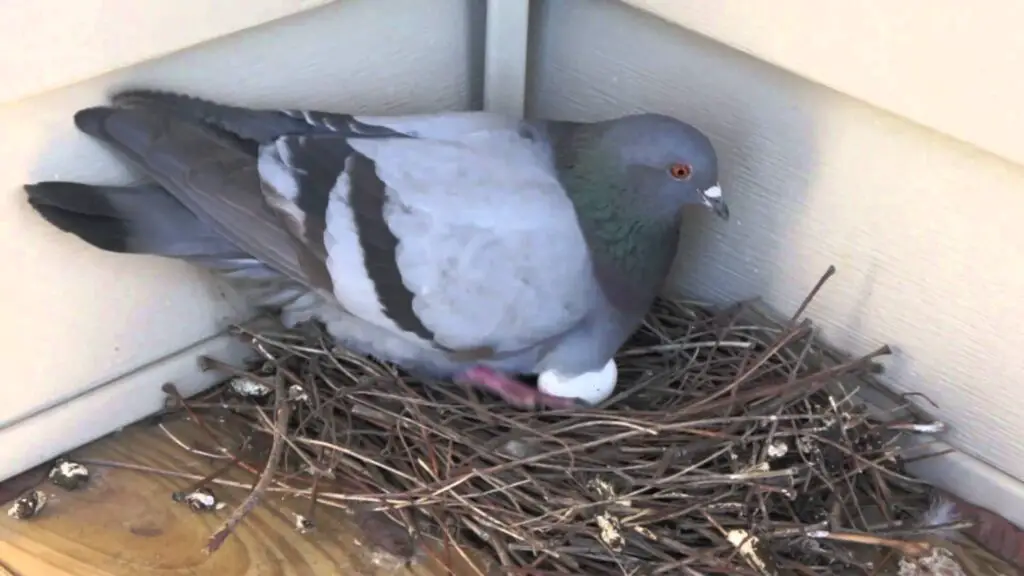
What month do pigeons leave the nest?
Peak breeding season is between March and July but feral pigeons can breed all year round. Normally 2 eggs are laid with 2 – 4 broods each year. The eggs are incubated for 18 – 19 days and the hatched chicks (squabs) are fledged and leave the nest after 30 – 37 days.
The timing of when pigeons leave the nest can vary depending on factors such as the specific pigeon species, local climate, and the availability of food. In general, pigeons tend to breed throughout the year, and the timing of nesting and fledging can occur multiple times within a year.
In temperate regions, where there are distinct seasons, pigeons may start breeding in the spring. The exact months can vary, but it’s common for pigeon nests to be active in the spring and summer months. The young pigeons (squabs) typically hatch and spend several weeks in the nest before fledging.
In more favorable climates or urban environments where food is available year-round, pigeons may engage in breeding activities throughout the year, and you might observe nests at different times.
If you are observing a specific pigeon nest, paying attention to the behavior of the adult pigeons, the presence of eggs, and the development of chicks can give you clues about the timing of nesting and fledging in your particular location. Keep in mind that pigeon behavior can be influenced by local conditions, and they may adapt their nesting cycles based on factors such as food availability and climate.
Do pigeons leave the nest before they can fly?
Most young pigeons will fledge a day or two before they are fully capable of flying and will spend a couple of days foraging on the ground. In some cases, pigeons will fledge and are unable to get back into their nest. This can happen when the nest is high up and the young bird cannot fly yet.
No, pigeons and most other bird species generally do not leave the nest before they can fly. Pigeons are altricial birds, meaning that when they hatch, they are relatively undeveloped and helpless. In the early days after hatching, pigeons are entirely dependent on their parents for warmth, protection, and food.
Pigeons typically spend a significant amount of time in the nest growing and developing. As they mature, their feathers start to come in, and their wing muscles strengthen through exercise within the nest. Once they reach a certain level of development, the young pigeons, known as squabs, will fledge. Fledging is the process where the young birds leave the nest for the first time and begin to learn to fly.
Fledgling is a critical stage in a bird’s life, and it usually occurs when the birds are physically capable of sustained flight. After fledging, the young birds may return to the nest or nearby perches, gradually becoming more independent as they hone their flying skills and learn to forage for food.
How long do baby pigeons stay with their mother?
around 2 weeks
However, these feathers aren’t strong enough to help the pigeon fly yet, they grow their stronger feathers later on. Once hatched the squabs will spend around 2 weeks being cared for by their mother until they grow big enough to leave the nest.
The duration that baby pigeons, also known as squabs, stay with their parents can vary depending on the species of pigeon. On average, the period during which squabs stay with their parents is around 25 to 35 days. However, this time frame can be influenced by factors such as the specific pigeon species, environmental conditions, and the availability of food.
During the first few weeks of their lives, squabs are entirely dependent on their parents for food and protection. Both the male and female pigeons take turns incubating the eggs and feeding the chicks. As the squabs grow and develop feathers, they become more mobile and start to explore the area around the nest.
Around the age of 25 to 35 days, squabs begin to fledge, which means they start to leave the nest and learn to fly. At this point, they are becoming more independent, although they may still return to the nest for feeding and shelter. The parents continue to provide some level of care and guidance even after the squabs have left the nest.
Is the pigeon nest on the balcony good or bad?
It is generally believed that it is inauspicious to have a pigeon’s nest in the house. Nesting on the balcony or terrace of the house means that he has brought bad luck with him. It should be removed promptly in this situation. Otherwise, the person has to face many problems.
The presence of a pigeon nest on a balcony can be viewed in both positive and negative lights, and it often depends on individual perspectives and circumstances. Here are some considerations for both sides:
Potential Positive Aspects:
Natural Beauty: Some people appreciate the opportunity to witness the natural behavior of birds up close. Watching pigeons build a nest, lay eggs, and raise their chicks can be a fascinating and enriching experience.
Wildlife Interaction: Having a pigeon nest on the balcony provides an opportunity for wildlife observation and interaction, creating a connection with the natural world.
Educational Value: For families with children or individuals interested in birds, having a pigeon nest can offer an educational experience about avian life cycles and behaviors.
Potential Negative Aspects:
Mess and Noise: Pigeons can create messes with their droppings, feathers, and nesting materials. Additionally, their cooing sounds might be bothersome, especially if the balcony is close to living spaces.
Disease Concerns: Pigeons are associated with certain diseases, and their droppings can be a source of potential health hazards. This is particularly concerning if the balcony is close to areas where people gather or prepare food.
Structural Damage: Pigeon nests, if not managed properly, can lead to structural damage to the balcony or surrounding areas.
Is it good to have pigeons nest at home?
Having a pigeon’s nest in the home will bring prosperity and peace. Moreover, birds have been the vehicle of many Gods and Goddesses. According to Vastu, pigeons are regarded as the worshippers of the goddess Lakshmi. Similarly, the peacock is the vehicle for Lord Kartikeya.
Whether having pigeons nest at home is considered “good” or not depends on individual perspectives, circumstances, and the specific location of the nest. Here are some factors to consider:
Pros:
Natural Beauty: Some people appreciate the presence of birds, including pigeons, for their natural beauty and the calming sounds they bring.
Wildlife Interaction: Having pigeons nest at home can provide an opportunity for wildlife observation and interaction, especially if you enjoy observing birds and their behaviors.
Pest Control: Pigeons feed on insects and seeds, and having them around might contribute to natural pest control in the area.
Cons:
Mess and Noise: Pigeons, like any birds, can create messes with their droppings, feathers, and nesting materials. Additionally, their cooing sounds might be bothersome to some individuals.
Disease Concerns: Pigeons are associated with certain diseases, and their droppings can be a source of potential health hazards if not managed properly.
Structural Damage: Pigeons may build nests in locations that could cause structural damage or block ventilation systems.
Management:If you have concerns about pigeons nesting at your home, consider implementing humane and non-lethal methods to manage the situation:
Deterrents: Use physical barriers or commercial deterrents to discourage pigeons from nesting in undesired areas.
Nest Removal: If possible, remove nests before eggs are laid or after the chicks have fledged, taking care to comply with local regulations.
Consult Professionals: Seek advice from local wildlife authorities or pest control professionals to explore effective and humane solutions.
Ultimately, the decision to allow or discourage pigeons from nesting at home depends on your preferences, the specific circumstances, and the ability to manage any associated challenges.
What happens if you destroy a pigeon nest?
Moving or destroying nests
Birds are at their most vulnerable when nesting. Any disturbance could kill or injure wild birds and their young – or cause parent birds to abandon their nest, eggs and young.
Destroying a pigeon nest can have several consequences, both for the pigeons and potentially for the person responsible for destroying the nest.
Impact on Pigeons:
Loss of Nest and Eggs: If the nest contains eggs or young chicks, destroying it would result in the loss of the current brood.
Stress and Displacement: Pigeons invest time and effort in building nests, and destroying it can cause stress. Pigeons may attempt to rebuild elsewhere, or they might abandon the area altogether.
Legal and Ethical Considerations:
Animal Welfare Laws: In many places, destroying the nests of birds, including pigeons, can be subject to animal welfare laws. Intentional harm to wildlife, their nests, or eggs may be illegal.
Ethical Concerns: Destroying a nest might be considered unethical if done without proper justification, as it disrupts the natural behavior of the birds.
Increased Pigeon Activity:
Adaptation: Pigeons are resilient and adaptable birds. If their nests are destroyed, they may attempt to rebuild or find alternative nesting sites in the vicinity. This could lead to increased pigeon activity in the area.
Potential for Repeat Behavior:
Nesting Behavior: Pigeons have a strong instinct for nesting, and if their nests are repeatedly destroyed, they may persist in trying to nest in the same area.
Why do pigeons come to my balcony?
Balconies are ideal for pigeons to roost, nest, or perch. They are high up, which provides pigeons with a good field of view, helping them feel safe from all the usual dangers. Furthermore, the handrail on a balcony is perfect for perching.
Pigeons may come to your balcony for several reasons, and their behavior is often influenced by a combination of factors:
Food Availability: Pigeons are opportunistic feeders, and if they find a consistent source of food on or near your balcony, they are likely to return. This could include food intentionally left out for them or unintentional food scraps that might be present.
Shelter: Balconies can provide shelter for pigeons. They may find your balcony to be a safe and protected space, especially if it has ledges or structures that offer perching spots.
Nesting Sites: Pigeons may be attracted to your balcony as a potential nesting site. If your balcony has areas that resemble natural ledges or cavities suitable for nesting, pigeons might see it as a suitable location to raise their young.
Water Source: Pigeons need water for drinking and bathing. If your balcony has a water source, such as a birdbath or containers with water, pigeons might be attracted to it.
Habitat Preferences: Pigeons are highly adaptable and have learned to coexist with humans in urban environments. They might simply be exploring your balcony as part of their regular movement within their territory.
If you want to discourage pigeons from frequenting your balcony, consider the following:
Remove Food Sources: Ensure that there are no accessible food scraps or intentional feeding that might attract pigeons.
Modify the Environment: Make your balcony less appealing by eliminating potential nesting sites, removing standing water, and making surfaces less comfortable for perching.
Where do pigeons go at night?
As night falls, the birds, particularly pigeons, will look for ledges that offer shelter. These are often lower down on your building or nearby property. The pigeons’ overnight roosting spot is likely to be flat and partially or fully sheltered from the wind and rain.
Pigeons, like many birds, seek safe and sheltered roosting spots at night for protection from predators and the elements. In urban environments, pigeons often choose ledges, eaves, or other structures on buildings to roost. The warmth provided by the buildings can be advantageous, especially in colder weather. Pigeons may also seek out trees or other natural structures in more rural settings.
The specific location where pigeons go at night can vary depending on the local environment. In cities, where pigeons have adapted well to human presence, they may roost on buildings or other structures that provide both shelter and a vantage point for spotting potential threats. The nooks and crannies of buildings or bridges can offer secure places for pigeons to rest.
Pigeons are known for their adaptability, and their ability to find suitable roosting spots is part of what has allowed them to thrive in diverse environments around the world. Their behavior at night is largely influenced by a combination of instinct, environmental conditions, and learned patterns of behavior within their specific habitats.
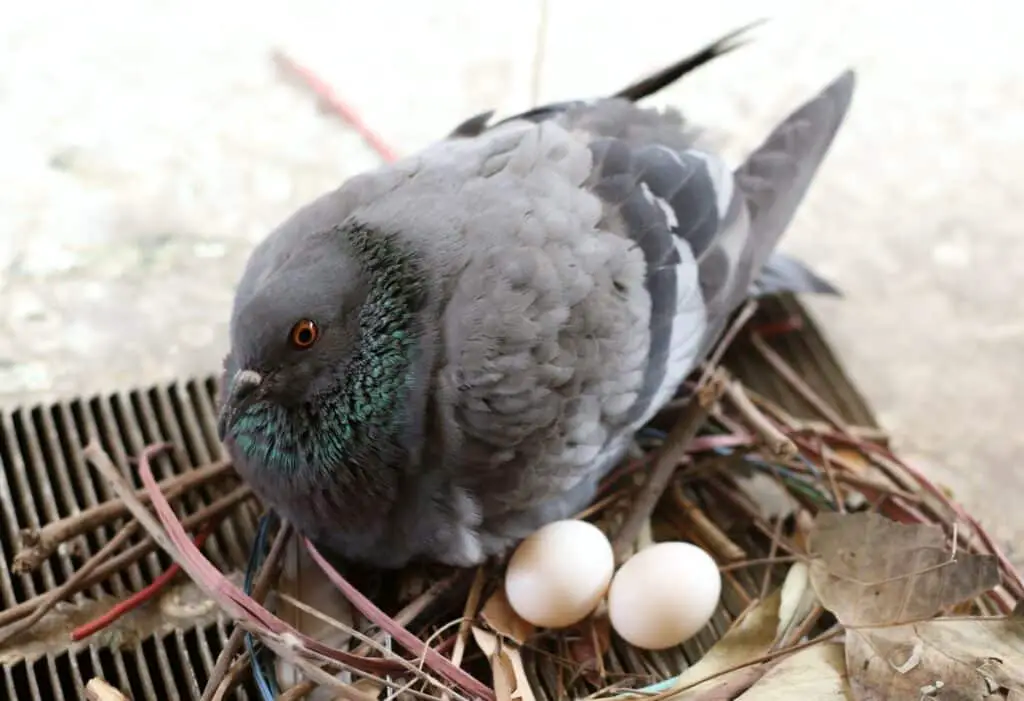
Conclusion
The departure of pigeons from the nest represents a pivotal moment in their lifecycle, embodying the harmonious blend of instinctual behavior and environmental cues. This process, known as fledging, is a testament to the intricate mechanisms of nature as young pigeons evolve from fragile hatchlings to self-reliant flyers. The timing of when pigeons leave the nest is finely tuned to ensure their preparedness for the challenges of the outside world, showcasing the adaptive strategies ingrained in their evolutionary history.
As fledglings spread their wings for the first time, the skies become both a playground and a classroom. The departure from the nest is not merely a physical transition but a symbolic journey into independence and self-discovery. This phase reveals the resilience of the avian species, illustrating how, through a delicate dance with nature, pigeons embrace their inherent instincts for flight and navigation. It is in the departure from the nest that the full spectrum of avian capabilities comes to fruition, marking the beginning of a life characterized by the freedom to explore, forage, and contribute to the perpetual cycle of life.
The departure of pigeons fact from the nest is a testament to the enduring wonders of the natural world, where each phase of life unfolds with purpose and precision. As fledglings embark on their maiden flights, they carry forward the legacy of generations past, continuing the timeless cycle of birth, growth, and the pursuit of survival. In unraveling the mysteries of when pigeons leave the nest, we gain not only a deeper understanding of their biology and behavior but also a profound appreciation for the interconnectedness of all living beings in the grand tapestry of the natural world.

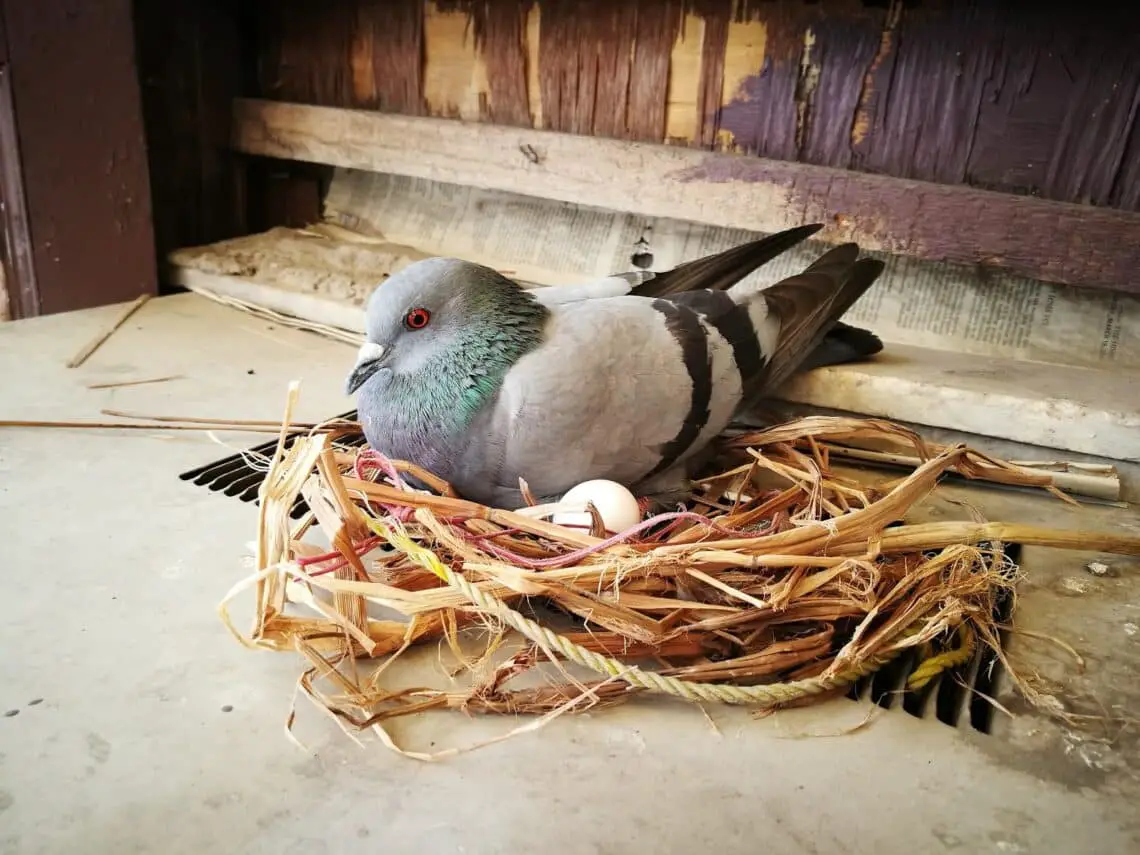
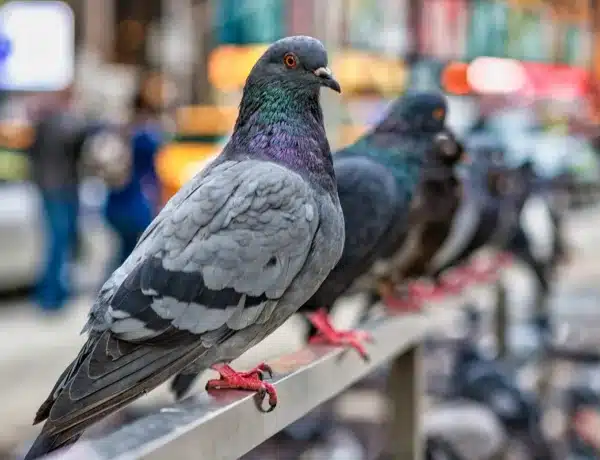
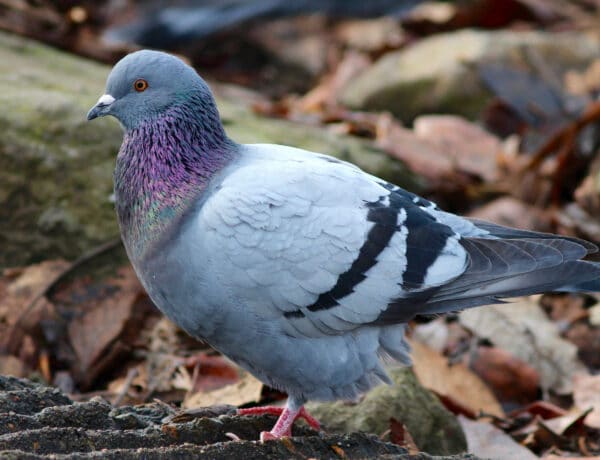
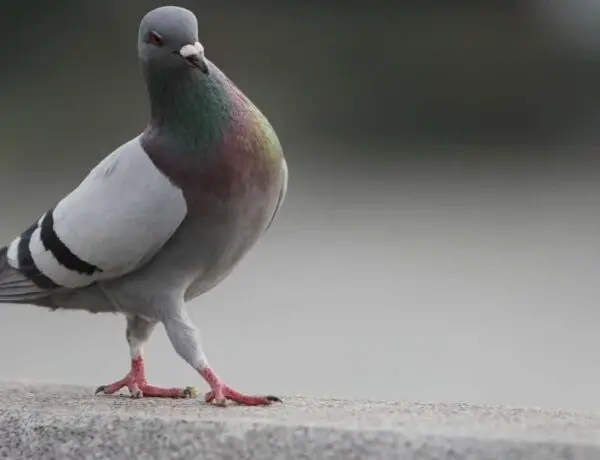
No Comments